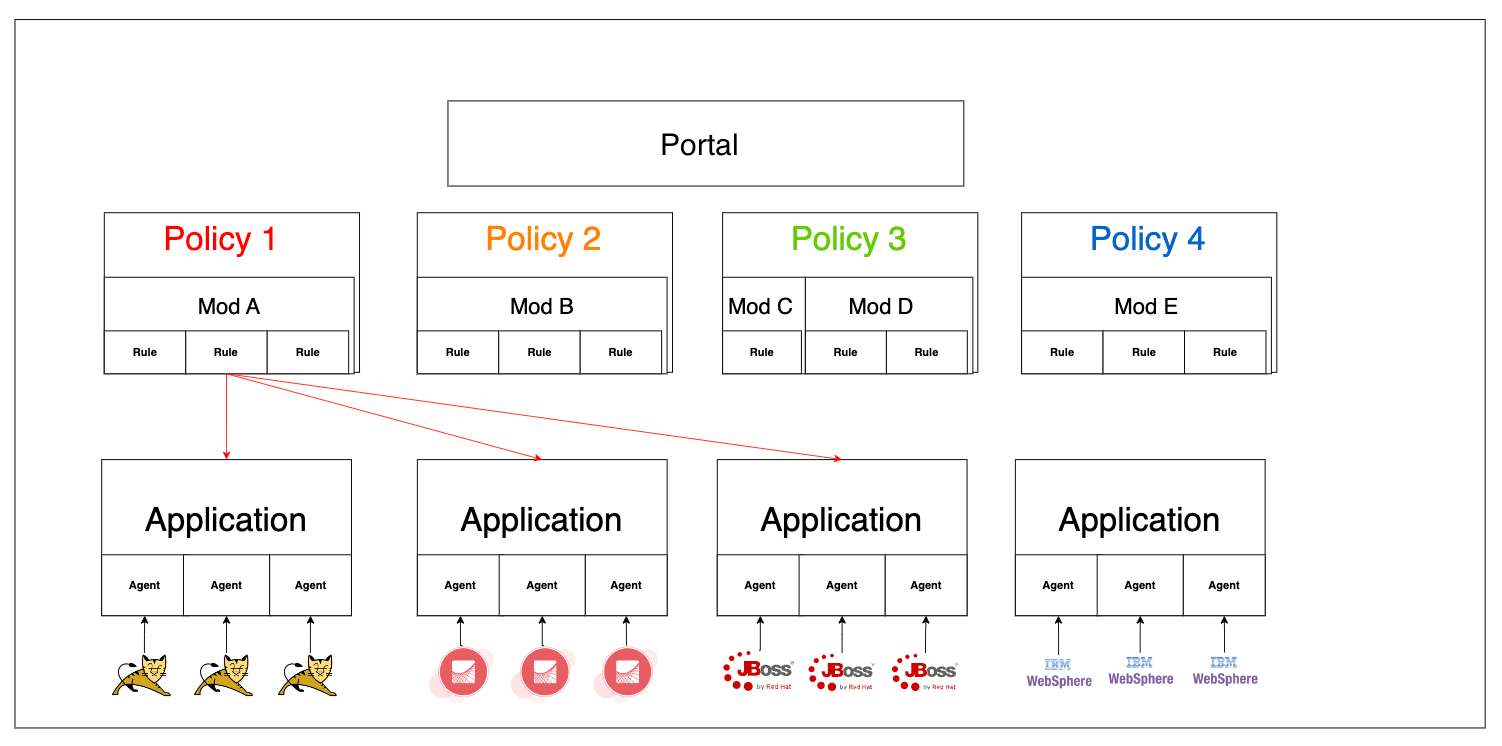User Guide
The User Guide covers concepts and terminologies which are used in the Portal. This guide has multiple sections; each one documents the details of a Portal's page or feature.
Agent
The Waratek Agent is a lightweight plugin for both Java and .NET based applications. It connects to the Portal where you can monitor and attach security Rules to the agent; these Rules define what protective actions the Agent should take in response to specific security events.
Application
A registered Portal account holder uses the console to place an Agent into a group, called an Application. Agents that are protecting different parts of an overall Java or .NET application on the Agent's host machines (they could be one machine or in a cluster), can be grouped as a single Application in the Portal.
When you want to control protection (via rules) to all of these agents together, you can put all of these agents into a collective group for ease of management and ease of rule or policy application. An agent group is called an Application as that is what it represents.
An Application mimics the concept of distributed or clustered applications. In a clustered environment an application might consist of several processes running on several machines where each is essentially a part of a larger application. Each running process might have its Agent loading with it. All of these Agents will report into the Portal and can be grouped as required (by program/functionality, geographically, by administrators, etc.). For example, a distributed web application could consist of multiple Apache processes across multiple machines, including an authentication component and an identity component. Together these are parts of one single application (the web service).
Rule
A Rule is the most basic level of security provided. A single rule can provide protection from vulnerability from the OWASP Top Ten, a specific instance from the Common Vulnerabilities and Exposures (CVE) listings, or a rule to assist with an upgrade to a later Java Critical Patch Update (CPU). Each rule must be contained within a Mod.
Mod
Mod stands for Modification; they can modify the behavior of a running process. Mods are a container or group for rules. Every rule must be contained within a Mod. A Mod must contain at least one rule but it can contain as many rules as you require. Mods are simply a wrapper or a grouping mechanism.
Policy
A Policy is a collection of Mods that you can apply to an Application, which is a grouping of Agents. A Policy allows you to create a set of Mods and Rules and apply them to as many Applications as required. The Application will then inform the individual Agents assigned to it that a new policy (or policy updates) is available for consumption and the individual Agents will download and apply that policy.
The following diagram shows the relation between Agent, Application, Mod, and Policy:

In this diagrammatic example, let's assume you create a single policy for your application. Later a new program with an identical setup is brought online in another location. Instead of creating a new policy, you can assign the existing one to the new application with a few clicks.